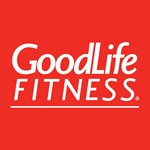Sunburn
Summertime equals a lot of time outdoors – whether you’re hitting the beach, attending a barbecue, lounging by the pool or playing a sport – you’re sure to get a lot of sun.
With all this extra time spent having fun in the sun, it shouldn’t come as a surprise you may get a sunburn. Of course, it’s always important to use your sunscreen and dress accordingly when battling those UV rays.
If you’re suffering from a sunburn, try these methods to soothe your skin:
- Take cool baths or showers to help relieve the pain. As soon as you get out of the bathtub or shower, gently pat yourself dry, but leave a little water on your skin. Apply a moisturizer to help trap the water in your skin, as it can help ease dryness.
- Use a moisturizer that contains aloe vera to help soothe sunburned skin. If a particular area feels especially uncomfortable, you may want to apply a hydrocortisone cream that you can buy without a prescription.
- Drink extra water. A sunburn draws fluid to the skin’s surface and away from the rest of the body. Drinking extra water when you are sunburned helps prevent dehydration.
- If your skin blisters, allow the blisters to heal. Blistering skin means you have a second-degree sunburn. You should not pop the blisters, as blisters form to help your skin heal and protect you from infection.
Bug bites
Another common summer ailment? Pesky bug bites. Whether it’s from bees, wasps, mosquitoes, horse-flies or you name it, those little suckers can strike and before you know it you’ve been bitten! The bites can itch and drive you crazy, or if you’re unlucky, they might be quite swollen and painful.
Try these remedies:
- For painful bites, like a bee sting, take an over-the-counter painkiller, such as acetaminophen or ibuprofen.
- For bites that itch, apply an ice pack or an over-the-counter anti-itch cream, such as hydrocortisone.
- To reduce swelling, apply an ice pack to the bite.
Allergies
If you suffer from summer allergies, we feel you and know you’re not alone.
While there’s nothing you can do to prevent your allergies from happening, here are a few extra steps to follow when pollen counts are high:
- If high pollen counts are forecasted, start taking allergy medications before your symptoms start.
- Close doors and windows at night or any other time when pollen counts are high.
- Avoid outdoor activity in the early morning when pollen counts are highest.
There's no miracle product that can eliminate all allergens from the air in your home, but these suggestions may help:
- Use air conditioning in your house and car if possible.
- Keep indoor air dry with a dehumidifier.
- Use a portable high-efficiency particulate air (HEPA) filter in your bedroom.
- Clean floors often with a vacuum cleaner that has a HEPA filter if possible.
When home remedies aren't enough, see your doctor
For many people, avoiding allergens and taking over-the-counter medications is enough to ease symptoms. But if this doesn’t work for you several other treatments are available.
Your doctor may recommend that you have skin tests or blood tests to find out exactly what allergens trigger your symptoms. They’ll help you from here.
Summer cold
A summer cold is simply a common cold you catch during summertime. Contrary to popular belief, it doesn’t have to be cold outside to catch a cold. Even when it’s warm and sunny, the rhinovirus that causes common colds can spread and infect people just as easily.
Try these tips to alleviate your symptoms:
- Rest up. Make sure to get plenty of sleep. Even though summer is full of tempting outdoor activities, you may have to stay inside and rest for long periods.
- Stay nourished and hydrated. Drink plenty of fluids, especially water. Avoid beverages that could dehydrate, like alcohol, coffee or energy drinks.
- Herbal remedies. Some herbs can support the immune system, helping it fight your nasty cold. Popular herbs that boost your immune system include garlic, liquorice root and turmeric.
- Humidifiers and steams. Humidifiers cannot directly get rid of a cold, but they can help relieve symptoms, especially runny nose and congestion.
